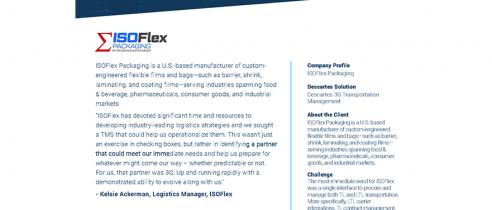Amazon has started offering cash back on the use of its freight services for those who are in the industry. This bold move offers to give both freight brokers and forwarders a percentage of money back for every load, and has raised a lot of questions over how this might impact the trucking industry.
Amazon Freight services first launched in 2019, and in the last few years, it has expanded significantly. It can’t yet challenge the other large freight providers, but it’s worth paying attention to its movements nonetheless. It’s got a large network with more than 30,000 trailers, and it can take on more work through some of its carrier partners.
It offers a few different services, including outbound shipping from Amazon facilities to customer facilities, inbound shipping to its own facilities, and shipping between its facilities.
Given its quick expansion, it could easily become an option for moving packages around the country, especially with its new offering – which is cashback for booking loads.
How Does It Work?
This interesting proposition involves Amazon Freight partnering up with American Express. Then, for every load that freight brokers and forwarders book with the company’s trucking arm, they’ll get around 3 or 5 percent back.
Moving freight is often a very expensive process, so businesses everywhere are looking for ways to reduce their costs. In the US, most companies rely upon FedEx, the Postal Service, and UPS for the handling of inland shipments, but Amazon has already started to get a toehold into this niche, and it’s now strengthening this.
Its partnership with American Express, which will be offering the cashback, is an interesting one, as the company doesn’t currently operate in this space – but other credit card companies do. Mastercard stepped up in 2017, providing fleet owners with new options for managing their costs. It seems that they will now face competition.
What Will The Results Be?
Amazon is certainly positioning itself to attract some small or even medium businesses looking for straightforward shipping options. It is offering simple fees, making it easier for them to understand and manage their costs, even without the cashback option.
It should be noted that Amazon has already offered this service in certain US cities in the past, but paused it in 2020. However, the relaunch is thought to be a calculated, strategic move that is likely to cause some significant industry disruption to existing freight companies. Although Amazon isn’t currently considered a threat to FedEx and the other delivery companies, it is poised to become one if it manages to gain significant market share. With its already ubiquitous reach and high adoption rates, it seems likely that it will succeed.
What Are The Pros And Cons?
It’s too early to tell precisely what the advantages and disadvantages might be, but there are likely to be some benefits that particularly attract small and medium businesses. For merchants who don’t want to deal with complex and potentially expensive shipping contracts with UPS and FedEx, Amazon’s simplicity may be very attractive.
However, it should be remembered that it’s not yet clear exactly how straightforward the rates are – Amazon has just claimed that they are simple. If this is true, it would be a notable benefit. Equally, the lack of a surcharge for residential deliveries could be significant.
There are some drawbacks too, including the fact that Amazon is currently dependent on other providers, namely the US Post Office, to reach all shipping destinations. There are also question marks over how the logistics will be handled when Amazon is promoting sales and has particularly high numbers of packages to deliver.
Furthermore, there are fears that the service may be discontinued if adoption rates are low, which could leave businesses without shipping contracts. Additionally, Amazon must be careful not to cause too much disruption to UPS, which it is currently heavily dependent on for many of its deliveries.








